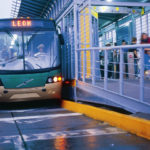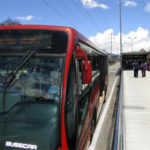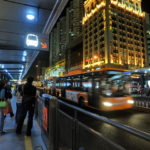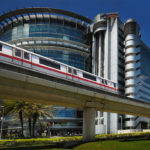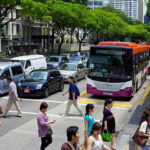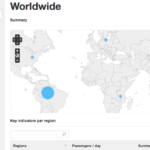Posts tagged with 'International Energy Agency'
City officials tasked with reducing and eliminating greenhouse gas emissions from their communities face a tricky task in estimating building emissions as they work to prevent the most harmful impacts of climate change. The biggest challenge is that there isn’t consensus ...

Electric vehicle sales have been growing exponentially due to falling costs, improving technology and government support. Globally, 10% of passenger vehicles sold in 2022 were all-electric, according to analysis of data from the International Energy Agency. That’s 10 times more than ...

There’s never been a better time to reduce reliance on fossil fuels. Oil and gas prices are skyrocketing as a result of Russia’s invasion of Ukraine, with gas prices exceeding $4 a gallon in the United States in March 2022 ...

To avoid the worst impacts of climate change and realize the goals of the Paris Agreement, greenhouse gas emissions should fall to net zero by mid-century and then reach net negative emissions thereafter. Responding to the science, 60 countries, as ...

The BRTData.org global database of bus rapid transit (BRT) data has recently been updated, and the increased number of BRT lines, as well as the length of those lines, reflects the commitment of cities around the world to provide high-capacity ...

Every single day, nearly 30.9 million people ride Bus Rapid Transit (BRT) or busways system globally. That’s more people than the entire population of Ghana or the state of Texas. 19.5 million (63.3%) of these passengers are located in Latin ...

Big news for fans of Bus Rapid Transit and busways – there are now over 300 bus corridors around the world. ViveBus in Chihuahua, Mexico put the total over 300 when it launched this year. Advanced bus systems have now ...

This is the inaugural post of a new “Sustainable Urban Transport On The Move” blog series, exclusive to TheCityFix. Ever since the mass production of automobiles began nearly a century ago, the prevailing paradigm in urban transport has been the ...

Buses began operating at a large scale by the year 1910, offering the advantages of route flexibility for routing, adaptation alongside the development of urban roads, and lower installation costs, as compared to railways. Efficient service and door-to-door service between ...

Our China Transportation Briefing shares interesting news and noteworthy research related to China’s transportation and urban development. The goal is to help people who are interested in solving China’s urbanization and transportation problems understand relevant Chinese policies and trends. Each ...

The world, and Asia in particular, is heading in the wrong direction Asia is rapidly urbanizing, creating localized stress on the transport system. In 2011, for the first time in history, more Chinese lived in urban centers than rural areas ...

Each time we travel extra miles in private cars, we emit more CO2, and we create more traffic related deaths and injuries (see data from the International Energy Agency and the World Health Organization). Each year 1.3 million die from ...

Join us on Tuesday, April 10 at 12:00 p.m. EDT for a webinar to launch BRTdata.org, the most comprehensive public database of bus rapid transit (BRT) systems around the world. Register for the webinar here. The new website was created by ...

Welcome to “Research Recap,” our series highlighting recent reports, studies and other findings in sustainable transportation policy and practice, in case you missed it. Diminishing Drunk Driving The U.S. national program to develop anti-drunk driving technology, Driver Alcohol Detection System ...

Welcome back to TheCityFix Picks, our series highlighting the newsy and noteworthy of the past week. Each Friday, we’ll run down the headlines falling under TheCityFix’s five themes: mobility, quality of life, environment, public space, and technology and innovation. Mobility ...













